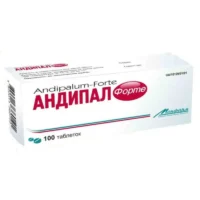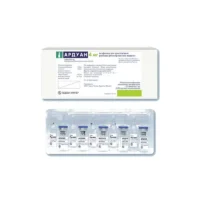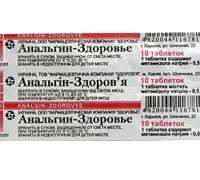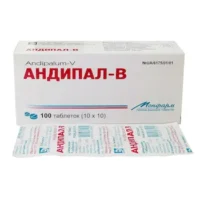Description
Trigan-D (paracetamol, dicyclomine) 500/20 mg Tablets
Ingredients
- Each tablet contains:
- Paracetamol 500 mg
- Dicyclomine 20 mg
Dosage
The usual dose is 1-2 tablets every 4-6 hours as needed. Do not exceed 8 tablets in 24 hours.
Indications
Trigan-D tablets are indicated for the relief of mild to moderate pain and discomfort associated with conditions such as headaches, muscle aches, menstrual cramps, and abdominal pain.
Contraindications
- Do not use Trigan-D if you have:
- Glaucoma
- Severe liver or kidney disease
- Myasthenia gravis
Directions
Swallow the tablets whole with a full glass of water. Do not crush or chew the tablets.
Scientific Evidence
Trigan-D combines the analgesic properties of paracetamol with the antispasmodic effects of dicyclomine, providing a synergistic approach to pain relief. Studies have shown that the combination of paracetamol and dicyclomine is more effective in relieving visceral pain compared to either drug alone.
Additional Information
It is important to follow the recommended dosage and not exceed the maximum daily limit of paracetamol to avoid potential liver damage. Consult a healthcare professional before using Trigan-D if you have any underlying medical conditions or are taking other medications.





